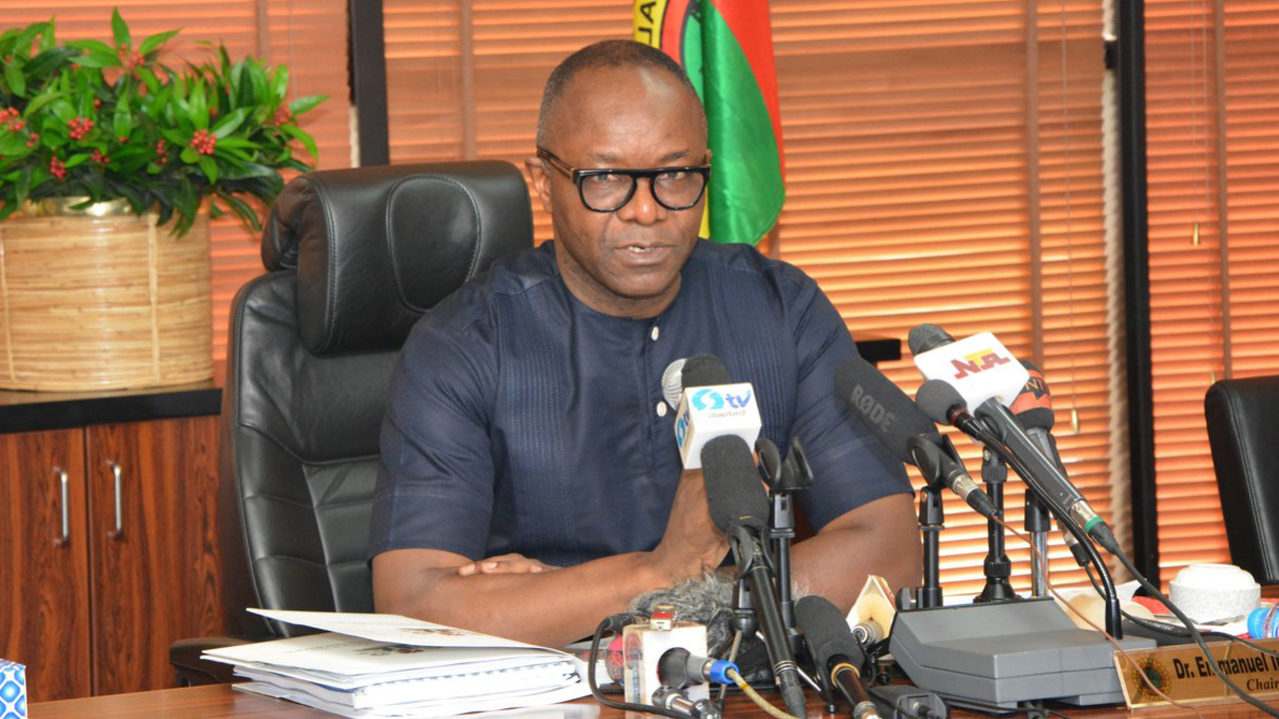
NNPC meets product demand largely through its DSDP framework. However, due to price challenges on the DSDP platform, some participants in the scheme failed to meet their supply quota of refined petroleum product, especially Premium Motor Spirit (PMS) also known as petrol to the corporation.
Speaking yesterday at the hearing by the Committee on Petroleum Downstream, the Group Managing Director of the NNPC, Dr. Maikanti Baru, said: “Due to massive diversion, hoarding, panic buying and smuggling coupled with the fact that three DSDP consortia had rejected October cargoes, there were insinuations of supply gap.”
Baru said that prior to this crises, the corporation had 1.9 billion litres of PMS, which would have lasted us 53 days.
He also attributed the real cause of this unfortunate situation to the rumour about increase in PMS price, which he said, led to massive hoarding, diversion and smuggling.
Also at the hearing, the Minister of State for Petroleum Resources, Dr. Ibe Kachikwu said that there should be criminal charges for illegal marketers, describing it as an infringement on the nation’s economy. “Everyone on the value chain must be made to face full wrath of the law,” he added.
“Additionally, trucking does not solve the problem. Nigeria needs to look at a piping system to transport refined fuel. We have to also address our refineries — whatever it takes, we need to look at our infrastructure deficit,” he said.
Similarly, Director of the Department for Petroleum Resources (DPR), Mordecai Ladan said that some of the filling stations have been found wanting of hoarding, diversion and selling above pump price.
Ladan said that NNPC was doing its best to help curtail the menace of hoarding and diversion. “We also call on the Independent Marketers to support us in that regard”, he added.
Chairman, Independent Petroleum Marketers Association of Nigeria (IPMAN) Board of Directors, Aminu Abdulkadir said: “We are law-abiding citizens. We disown those filling stations built without licences. In fact, they shouldn’t only be closed down or sanctioned, such stations should be demolished.”
President of Nigerian Association of Road Transport Owners (NARTO), Kassim Ibrahim Bataiya disagreed with the notion that supply gap was the cause of the fuel scarcity in the first place. “This is because the loading within that period had remained the same.”
Petrol queues are gradually disappearing from most filling stations in the country, but the price per litre of petrol, has remained above the official price of N145 per litre.
Meanwhile, Lagos based right crusader and lawyer, Ebun Olu Adegboruwa yesterday called on the Nigerian Labour Congress, the Nigerian Bar Association, activists, civil society organisations, the media, the clergy and all people of good conscience, to rise up in mass protests against what he called contrived hardship in the country.
He said the call was to make the government end the pitiable plight of Nigerians, who were also thrown into blackout at the peak of the hardship occasioned by the artificial fuel scarcity.
He described the current fuel scarcity as a grand conspiracy to impose hardship on Nigerians.
[ad unit=2]



